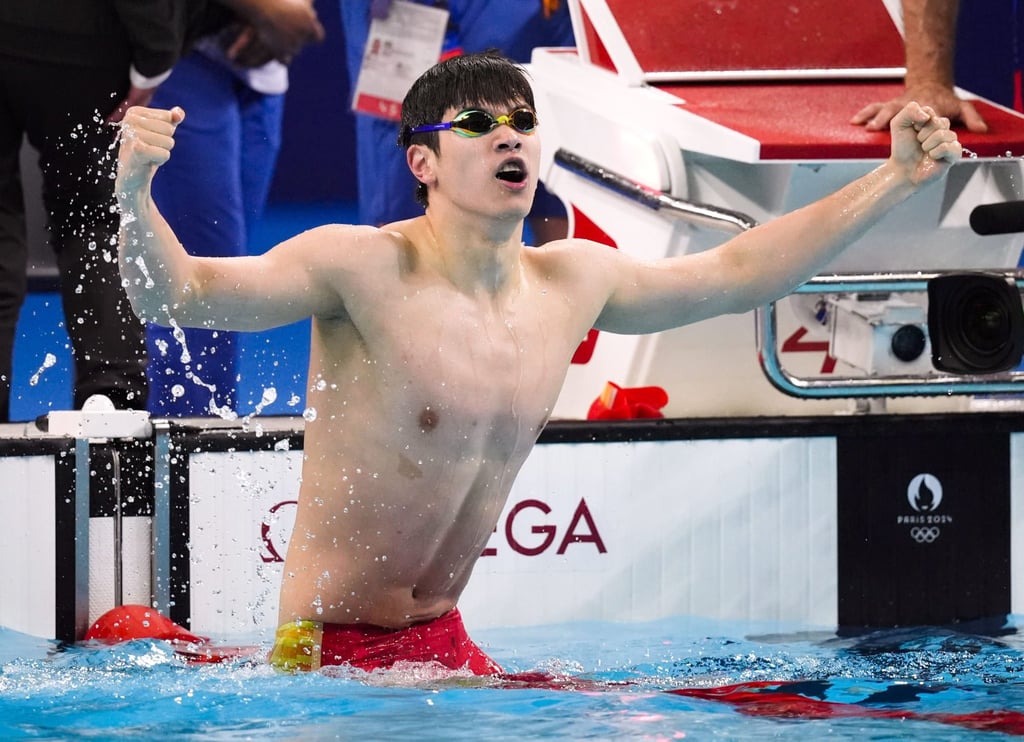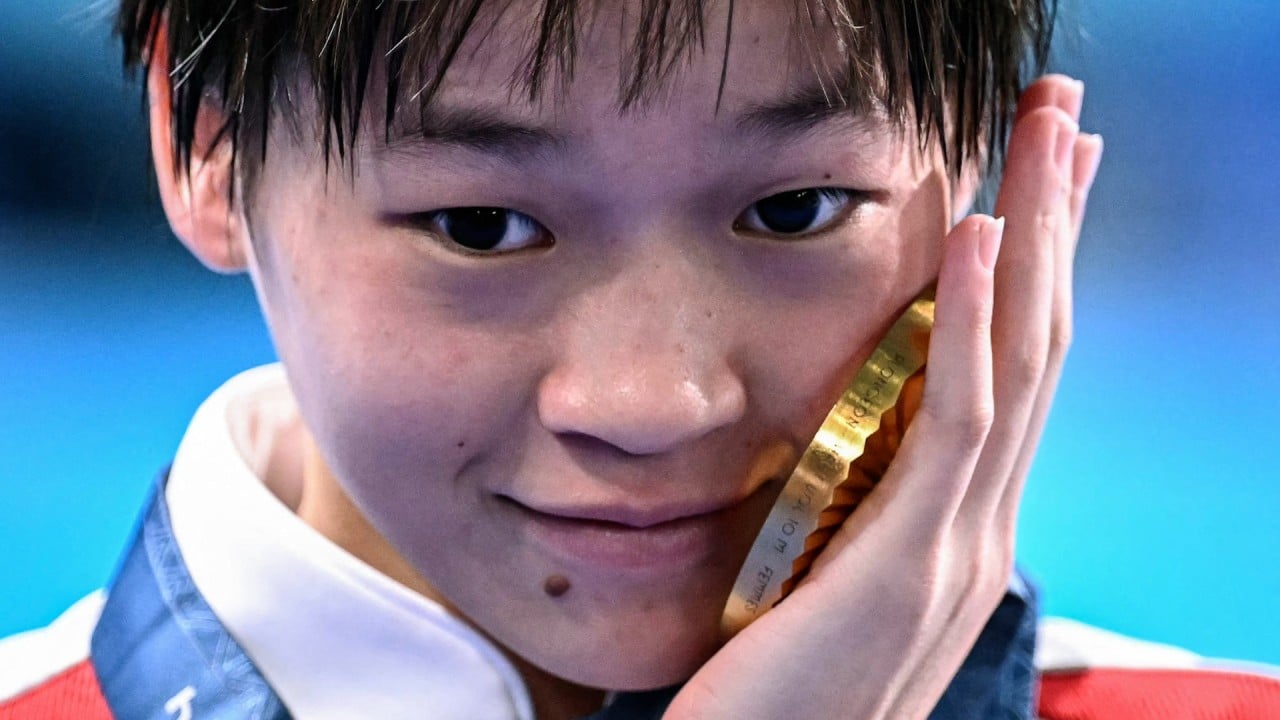The Olympic Games mean different things to different people. Which country has done best in the games also depends on how you count the medals. Where gold medals are concerned, China’s performance in the Paris Olympics is doubtless its best since 2008. This year, it tied with the US in gold medals, recording the most golds medals it has ever won at a Summer Olympics away from home.
China maintained its dominant position in table tennis and diving, while also performing well in swimming and tennis, sports traditionally dominated by Western countries. Pan Zhanle’s record-breaking performance in the men’s 100m freestyle competition was met with disbelief from swimming coach Brett Hawke, who commented that the Chinese swimmer’s record-breaking win was not “humanly possible”. That’s despite the fact that Pan had taken doping tests 21 times between May and July.
China’s swimming team only started competing in the Olympic Games in 1988, and won its first gold medal in the women’s 100m freestyle competition in 1992. Since then, China has produced many gold medallists in swimming, with the majority coming from Jiangsu and Zhejiang provinces, as well as Shanghai. How did China pull off this amazing feat and why have most gold medallists come from the coastal areas of the country?
The secret to China’s Olympic success is a combination of economic growth, a large population base and geography. As documented by sociologist Wang Feng at the University of California, Irvine, in his book China’s Age of Abundance: Origins, Ascendance and Aftermath, China’s spectacular economic growth since its reform and opening up enabled Chinese people to become much better fed.
In the early 1970s, China managed to produce less than one egg per person each week. But between 1978 and 1983 there was a 50 per cent increase in consumption of eggs, followed by continuous subsequent increases. As China became richer, its children grew much taller. Wang notes that at age seven, a boy in urban China was 5.2cm taller in 2002 than in 1992 and a girl was 5.7cm taller.
Parts of China’s east coast have a reputation of being the cradle of Olympic gold medallists, and for good reason. China’s east coast has long been its richest region; the people there are more well fed and physically fit than those elsewhere.
Geography is also important. Jiangsu and Zhejiang provinces are crisscrossed with lakes and rivers, fostering strong interest in swimming among residents from a young age. Wealthy cities in eastern China are able to build the sporting infrastructure necessary for nurturing young talent.

China’s large population and diversity enables it to source athletes with attributes that meet the requirements of different sports. Elite athletes are extremely disciplined and able to endure extreme hardship during training. But some sports prioritise a slender build and calmness of mind.
Diving, for example. As southern Chinese are generally smaller than those from the north, Zhanjiang, a relatively poor city in the southwestern part of Guangdong province, has the distinction of producing three Olympic gold medallists in diving since 2004.
Seventeen-year old Quan Hongchan comes from a village in Zhanjiang. Only 150cm tall, she’s the perfect example of how the typical southern Chinese physique, tough training and mental strength can combine to achieve Olympic success. She won three gold medals in diving in Tokyo and Paris, earning perfect scores for her phenomenal “water splash disappearing” technique.
Lee Lai-shan, a native of Cheung Chau, won Hong Kong’s first gold medal in windsurfing in 1996. The city would not win any more Olympic golds until 25 years later, when Cheung Ka-long claimed Hong Kong’s first gold medal in fencing. With two golds in fencing at the Paris Olympics, Hong Kong is among the top 20 achievers in terms of Olympic gold medals won on a per capita basis.
Ranked 37th on the Paris Olympics medal table and outperforming other Asian economies with much larger populations, Hong Kong’s stellar performance is attributable not just to the determination and high calibre of its athletes, but also funding support from the government.
In 2024-25, the government has provided HK$5.7 billion in funding for recreational and sports facilities for the community. For elite athletes, the government has increased funding for the Elite Athletes Development Fund to HK$941 million, a 40 per cent rise over five years ago.
Since Cheung’s fencing win in 2021, the government and the Hong Kong Jockey Club have jointly established a Sports Science and Research Funding Scheme amounting to HK$300 million to help athletes enhance their performance. When it comes to supporting athletes, the government is unquestionably doing the right thing and spending its money well.
The success of Cheung and Vivian Kong Man-wai has set off a fencing frenzy among children. The continued improved performance of Hong Kong’s athletes across diverse fields, including golf and tennis, has boosted enthusiasm for sports.
Sports Park Sai Sha in the New Territories, the first of its kind to be developed by a private company, will open later this year. Together with Kai Tak Sports Park, it will provide a quantum leap in the number of sports facilities available to both elite athletes and sport enthusiasts in the community.
As some of our top athletes retire, Hong Kong may not repeat the same level of success in the next Olympic Games. But the abundance of facilities, financial support and a heightened enthusiasm for sports should bode well for Hong Kong’s long-term sports development.
Regina Ip Lau Suk-yee is convenor of the Executive Council, a lawmaker and chairwoman of the New People’s Party




-%C3%98nders_TrackClub.00_01_59_00.Still002.jpeg?itok=yPfun2YH)